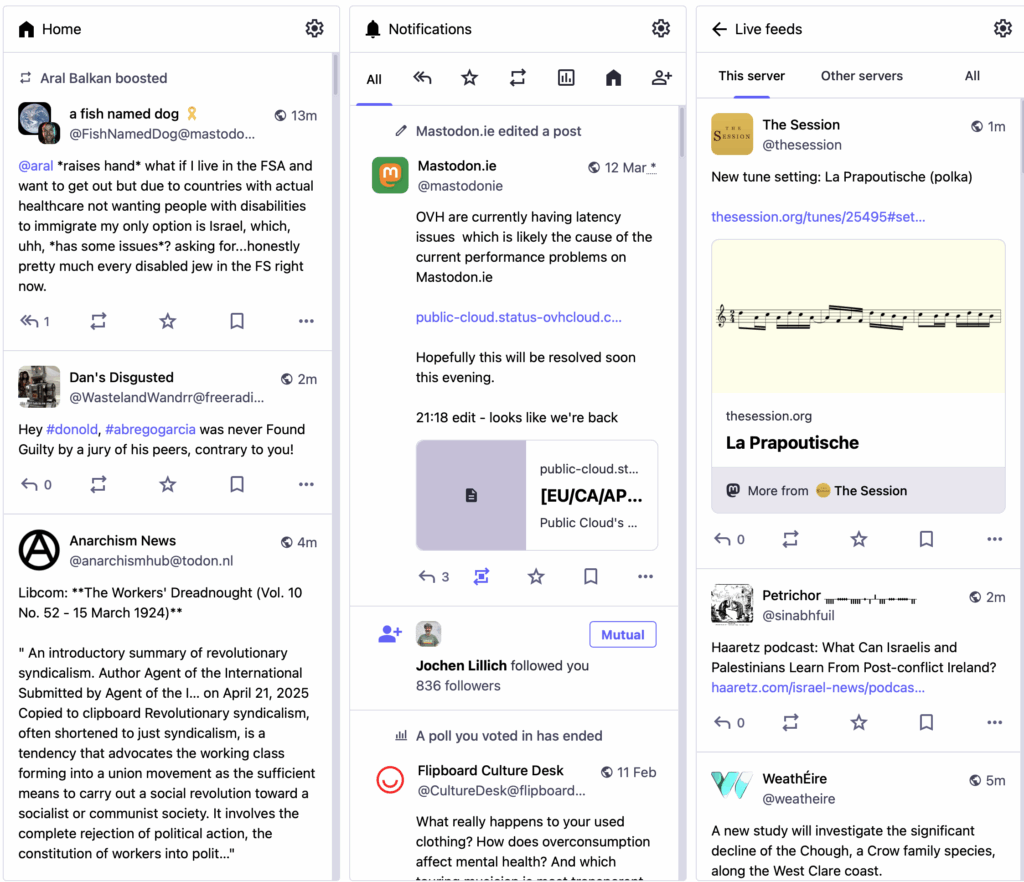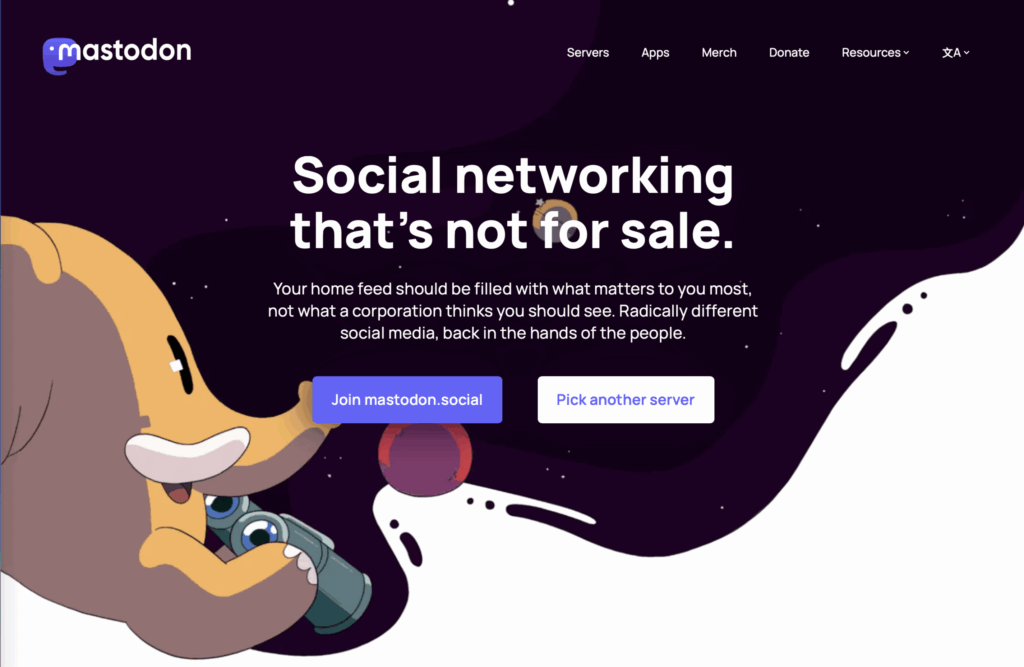I’ve been using Mastodon for a few years now, and while I appreciate what it is, I’m still not entirely sure if I’ve found the right home for it. That in itself says a lot about the platform—both what makes it great and what makes it tricky.

First, a bit of context for anyone unfamiliar.
Mastodon is a social network, but not like Twitter/X or Facebook. It’s decentralised, which means there isn’t one single company running the whole thing. Instead, it’s made up of many smaller communities called instances. Each instance is run by a group or individual and has its own rules, vibe, and user base. They all talk to each other—so you can follow people across instances—but the instance you choose does shape your experience.
If that sounds confusing, think of it like email. You can have a Gmail address, someone else can be on Outlook, another on a university domain, but you can all still email each other. Mastodon works a bit like that. You sign up to an instance, but you can follow and talk to people across the entire “Fediverse” (the wider network Mastodon is part of).
That decentralisation is one of its biggest strengths—but also where it gets complicated.
I started on a niche Linux/tech instance. It seemed like the right fit—I’m a bit of a nerd, and I figured I’d find like-minded people. And I did, sort of. But I quickly found myself limited in what I felt comfortable posting. Want to talk politics? A film recommendation? Something personal? It all felt a bit off-topic. I wasn’t there just to talk about distros and bash scripts.
So I moved to a bigger, more general instance. But that had its issues. It was… noisy. Like walking into a giant room where everyone’s already mid-conversation and the topics are changing by the second. It felt harder to find a rhythm, and even harder to be heard.

Most recently, I moved to a regional instance based in Ireland. I liked the idea of something more grounded—local context, familiar cultural references, maybe even some offline crossover potential. And while it’s been the best fit so far, it still doesn’t quite click. I find myself posting less often, or second-guessing what I want to say. Some topics can spark intense responses, and the intimacy of a smaller instance means the room can feel a bit small when things heat up.
And I say this as someone who’s fairly tech-savvy. I understand how the system works, I know how to migrate accounts, and I can follow the backend discussions. But even with all that, finding the right instance—one where the tone, topics, and people all feel right—has been a challenge.
That, in a nutshell, is Mastodon’s double-edged sword. The freedom to choose your community is a gift. You’re not trapped on a single corporate platform with shifting algorithms and ads. But it also means the experience depends heavily on where you plant your flag. Pick the right instance, find “your people,” and it can be brilliant. Get it slightly wrong, and it can feel like showing up to a party where you’re not quite on the guest list.
For now, I’m still wandering a bit. Still listening more than speaking. Still reading, bookmarking, quietly appreciating the people who’ve clearly found their herd.
I haven’t given up on Mastodon. Not at all. But I have accepted that—unlike the algorithm-driven fire hose of X—it’s a place that rewards patience, intentionality, and a bit of trial and error.
And maybe that’s not such a bad thing.
As always, be excellent to each other.

